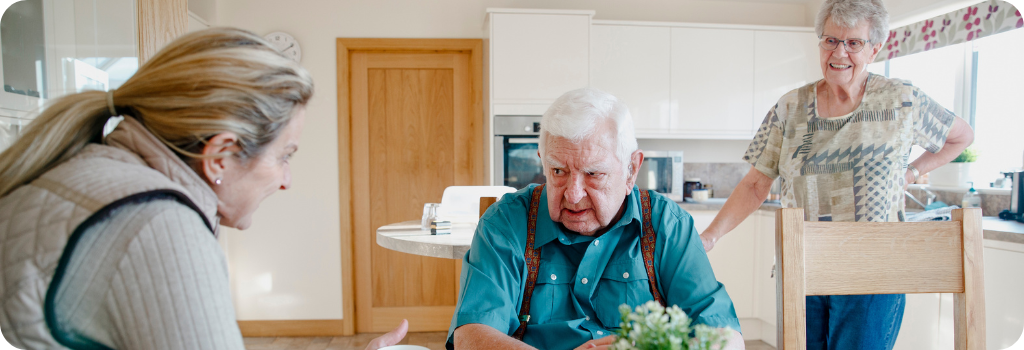
Legal Checklist for Arranging Elder Care (UK)
Introduction When an elderly loved one needs extra help, families often face a critical choice: should we opt for live-in

Caring for a loved one with dementia at home is a journey that comes with challenges, but also rewarding moments. Keeping someone with dementia in a familiar environment can greatly benefit their comfort and well-being. In their own home, they are surrounded by cherished memories and routines, which can help reduce confusion and anxiety. This article provides practical advice on how to provide specialized dementia care at home, from creating a safe space to utilizing support resources. With patience, understanding, and the right help, you can ensure your loved one receives the compassionate care they need while remaining in the place they know best.
One of the greatest advantages of dementia care at home is the familiar surroundings. A familiar home filled with personal belongings, family photos, and the comforts of a daily routine can be soothing for someone with dementia:
By leveraging these benefits, many families find that home is the best place for a person with dementia to thrive, especially in the earlier stages of the condition.
While a familiar environment is ideal, it’s important to make some home adaptations to ensure safety as dementia progresses:
By making these modifications, you transform the home into a more dementia-friendly environment. Small changes can have a big impact on reducing risks and easing daily activities.
Routine is incredibly helpful in dementia care. A consistent daily schedule provides structure and can reduce anxiety:
Having a structured day can make caregiving more manageable for you as well, as tasks become part of a flow. Over time, you’ll learn the patterns that work best and adapt the routine as the dementia journey evolves.
Effective communication with someone who has dementia requires patience and empathy. Here are some strategies:
Remember, the content of conversations is less important than the feeling of being heard and loved. Staying patient can be challenging, but a calm presence goes a long way in building trust and keeping the person with dementia engaged.
Providing dementia care at home can be demanding for family members. As a caregiver, your well-being is crucial too:
By taking care of yourself, you remain strong and patient for your loved one. Remember that accepting support is not a sign of weakness—it’s a way to ensure you can continue providing the best care possible.

As dementia progresses, care needs can increase beyond what a family can comfortably provide alone. It’s important to recognize when to seek additional help:
Home care services can be a lifeline in these situations. For example, Prime Eldercare provides experienced dementia caregivers who can either visit hourly or live-in to support your family. These professionals understand how to handle the complexities of dementia with compassion and skill. They can assist with personal care (bathing, dressing), medication management, meal preparation, and companionship, all tailored to your loved one’s needs. Engaging an agency also means you have backup if a carer is ill, and oversight to ensure quality care.
Caring for a loved one with dementia at home allows them to stay in a cherished environment, surrounded by the people and things they love. While it requires planning, patience, and support, many families find that the familiar comfort of home greatly improves their loved one’s quality of life. By adapting the home for safety, keeping a consistent routine, communicating with empathy, and taking care of yourself as a caregiver, you can create a nurturing space for someone with dementia to live well.
Remember, you are not alone on this journey. Lean on family, friends, support groups, and professional resources when needed. With the right approach and a helping hand from services like Prime Eldercare, your loved one can receive specialized dementia care at home, maintaining dignity and connection in the place they feel most secure.

Introduction When an elderly loved one needs extra help, families often face a critical choice: should we opt for live-in

Introduction Choosing between keeping your loved one at home with care support or moving them into a care home is

Introduction Figuring out how to pay for an elderly loved one’s care can be one of the most stressful parts